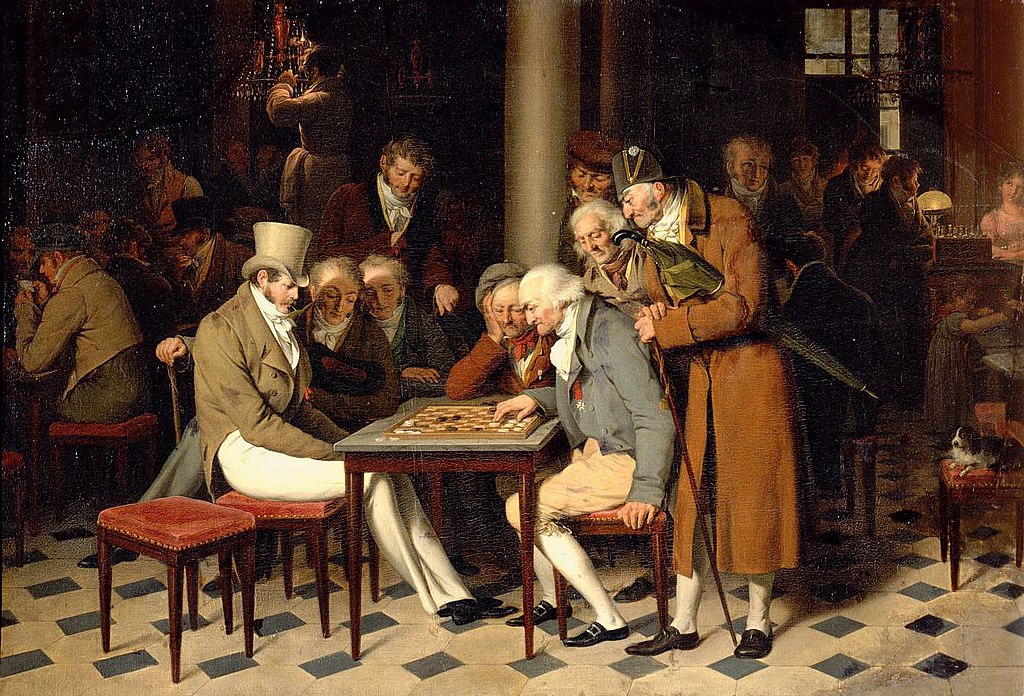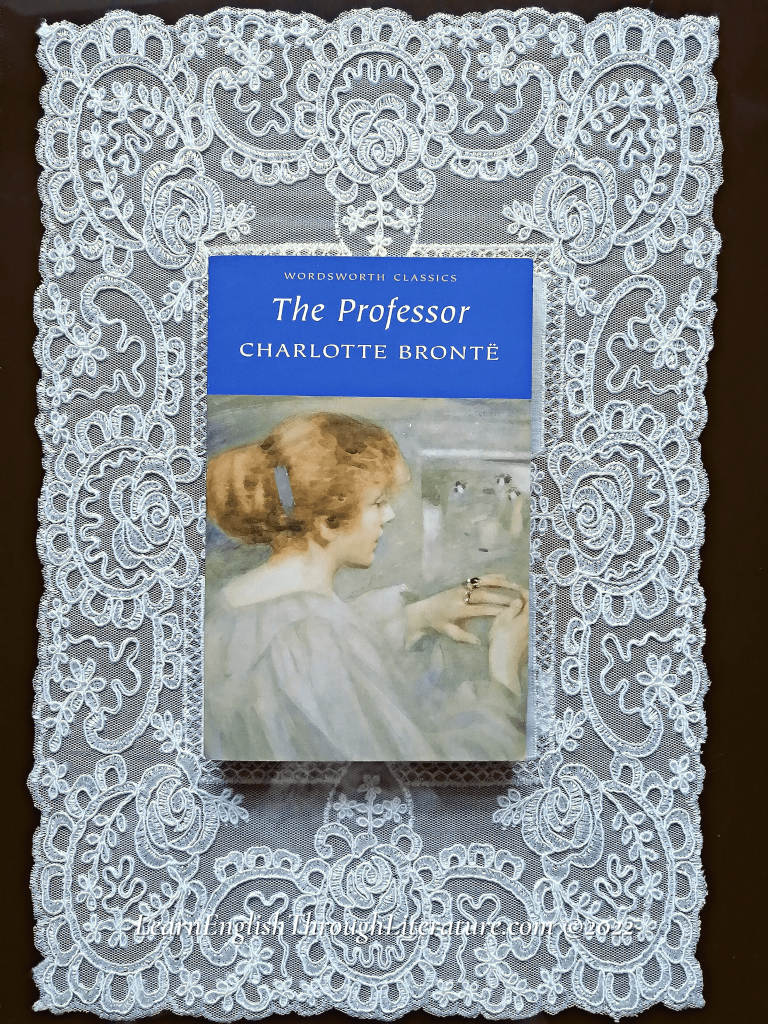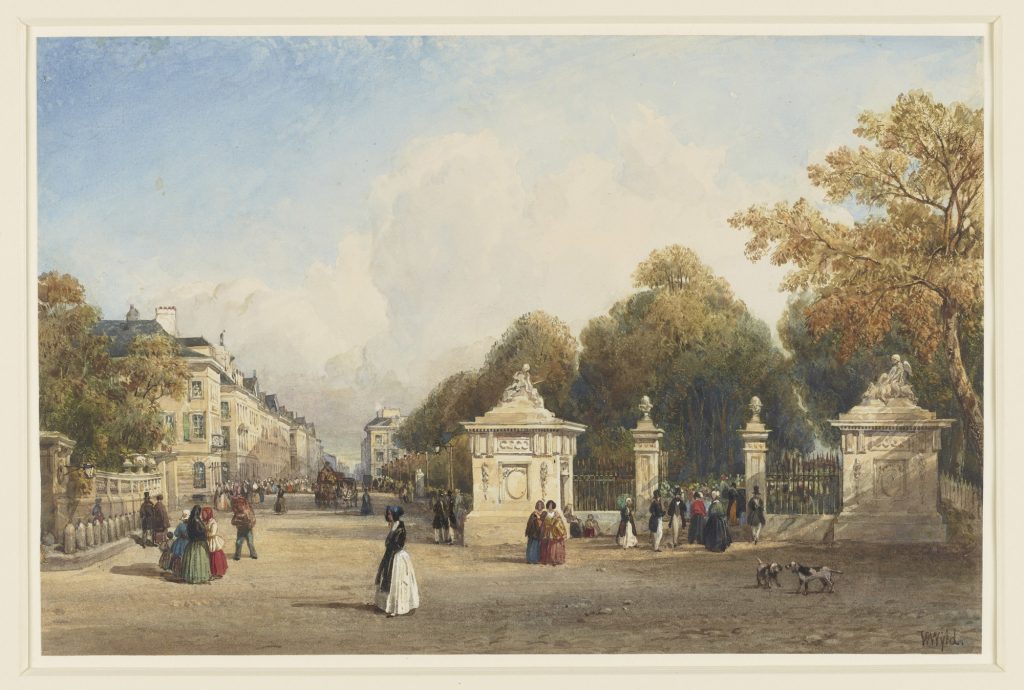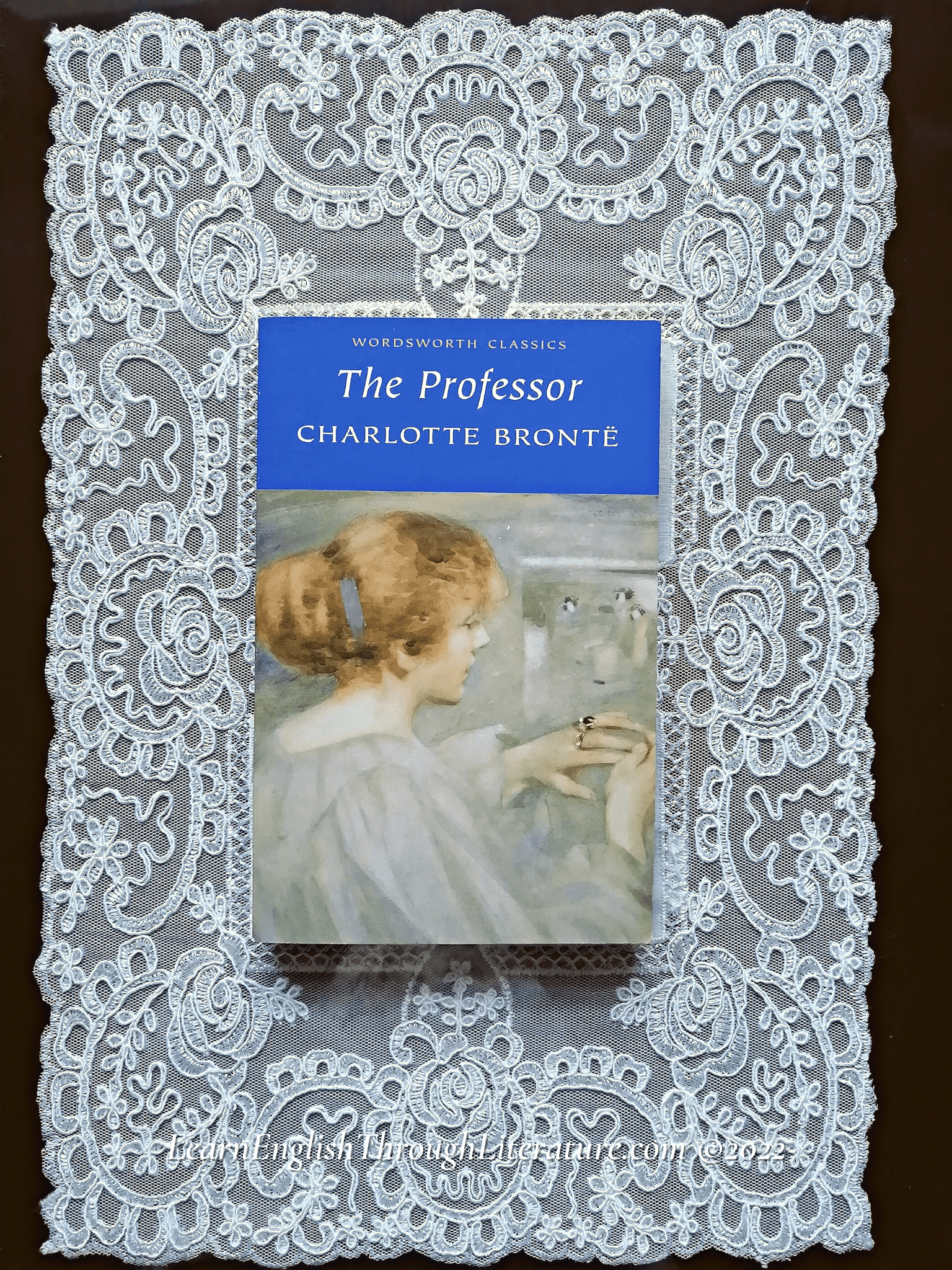In light of the ongoing war and widespread migration of many people throughout Europe, many of us are reconsidering what languages we are studying and why.
In what way does having another language help you? 💭
Practically speaking, it can help us to find a job, secure accommodation, make friends and even communicate with strangers.
🌍 It also opens our minds to a different understanding of our existence, something that we wouldn’t fully perceive through our native language alone.
Charlotte Bronte, the great novelist from Yorkshire, northern England, understood this well.
She and her sister Emily both spent time in Brussels, Belgium, as students learning the French language and later as teachers of English there. While Emily did not stay long, Charlotte was both fascinated and challenged by her experience as a foreigner in a new country, living her life between two different languages.
If you have ever read the very first novel she ever wrote (although it was the last to be published), you will already remember this about Charlotte Bronte. The Professor (1857) is full of references to the appreciation of language, the challenge of teaching your language to others, and of course the experience of studying and using a second language.

around the time that the Bronte sisters were in the Belgian capital.
Image Credit: William Wyld, Public domain, via Wikimedia Commons
Our Lesson today will look at some key quotes from the novel that encapsulate these aspects of learning a language. We will ☑️ look at them one by one, and then ☑️ explain in our own words what Bronte was aiming to convey through them.
…
🇬🇧 BRONTE’S APPRECIATION OF LANGUAGE 🇫🇷
Here is the longest quote we will look at today. It is narrated from the perspective of a young Englishman called William Crimsworth who, after failing to find a satisfying work in England, has just relocated to Brussels, the capital of the newly formed state of Belgium. He hopes to teach English but he also desires to improve his proficiency in French.
Here he describes his experience of listening to the Belgians speaking French, and how much he enjoys and envies them (wishes he could do the same). Instead, he finds himself struggling to pronounce French words like a native.
📘 … there were two gentlemen seated by it talking in French; impossible to follow their rapid [very fast] utterance [speeches], or comprehend much of the purport [main message, purpose] of what they said— yet French, in the mouths of Frenchmen, or Belgians … was as music to my ears. One of these gentlemen presently discerned [now noticed] me to be an Englishman— no doubt from the fashion in which I addressed the waiter; for I would persist in [I stubbornly kept on] speaking French in my execrable [extremely bad or unpleasant] South-of-England style, though [although] the man understood English. The gentleman, after looking towards me once or twice, politely accosted [stopped, interrupted, addressed] me in very good English; I remember I wished to God that I could speak French as well; his fluency and correct pronunciation impressed me for the first time with a due notion [proper feeling or sense] of the cosmopolitan [multi-national] character of the capital [main city] I was in; it was my first experience of that skill in living languages I afterwards found to be so general [widespread] in Brussels.
– Charlotte Bronte, The Professor (1857)

A painting by French artist, Louis-Léopold Boilly.
Image Credit: Public domain, via Wikimedia Commons
As you can see from this passage, William is sitting in a hotel in Brussels where he overhears some Belgians speaking in French. He cannot understand everything they are saying because they speak so quickly – ‘impossible to follow their rapid utterance, or comprehend much of the purport of what they said’ – but he enjoys the sound of it all the same – ‘as music to my ears’.
Then he describes how he, William, chooses to speak to the waiter in his terrible French even ‘though the man understood English’. After a couple of looks at him, the waiter answers him politely ‘in very good English’.
At this point, William ‘wished to God that [he] could speak French as well; [the waiter’s] fluency and correct pronunciation impressed [William] for the first time with a due notion of the cosmopolitan character of the capital [he] was in’. This was his ‘first experience of that skill in living languages I afterwards found to be so general in Brussels’.
…
👨🏫 WILLIAM CRIMSWORTH AS A TEACHER ABROAD
📘 ‘“Monsieur will give a lesson in the first class to-day,” said she; “… at the first, a master naturally feels a little unsettled.”
She was quite right, as I had found from experience …’
– Charlotte Bronte, The Professor (1857)
Every time I read this passage, I empathise with William Crimsworth as he embarks on his first teaching experience. It can be rather scary to begin your career as a teacher, even when you have a strong grasp of your subject!
Here, Madame Reuter, his new boss or supervisor, introduces him to the new students, telling them that ‘Monsieur’ (that is, William) will only be teaching the younger students today because at first he ‘naturally feels a little unsettled’.
In William’s own words, ‘She was quite right, as I had found from experience …’
He doesn’t need to say more for us, the readers, to understand how ‘unsettled’ (worried, shaken, or nervous) he must have been on that very first day of teaching! 👩🏼🎓👩🏻🎓👩🎓
…
📚 FRANCES EVANS HENRI AS A STUDENT OF ENGLISH 🖋️

The story now shifts (turns) its attention to a young woman named Frances Evans Henri. She is an interesting character, a kind of sewing woman (lace-mender) who is eager to continue learning English in her spare time even despite working full-time.
Here, Madame Reuter introduces her to William as his next ‘new student’,
📘 “She … has asked permission to attend your lessons, in order to perfect her knowledge of English, in which language she has, I believe, already made some progress …”
– Charlotte Bronte, The Professor (1857)
And here Frances herself explains her situation or background to her teacher William Crimsworth:
📘 “I earned money a little, and this money I gave for lessons in the studies I have mentioned; some of it I spent in buying books, English books especially; soon I shall try to find a place of governess, or school-teacher, when I can write and speak English well …”
– Charlotte Bronte, The Professor (1857)
Frances Evans Henri works hard and quietly. William Crimsworth is impressed by the good quality of her work (Bronte here called ‘homework’ by the French word, ‘devoir’):
📘 ‘The devoir was powerfully written in language at once chaste and choice, in a style nerved with vigour and graced with harmony.’
– Charlotte Bronte, The Professor (1857)
In my opinion, Frances must have been quite an assiduous (hardworking) learner. ✍🏻 After all, writing proficiently in a language is an accomplishment we associate with reaching an advanced level in that language.
And yet, as this website aims to show, one can always learn to read and write fluently in another language if you have the right resources and a tutor who is knowledgeable about the materials!
Clearly, William Crimsworth was such a teacher (was this kind of teacher). 👨🏫
…
🗺️ IS IT WORTHWHILE TO LEARN A SECOND LANGUAGE?
Sometimes people mention that they find The Professor a bit challenging to read because it is full of short French phrases.
Indeed, Charlotte Bronte really loved French. 🇫🇷 Thus, she could not resist (withstand, hold out against, counter, be strong when faced with temptation) to include some French words and phrases in her first novel.
📘 “… no respectable family will receive a governess whose whole stock of knowledge consists in a familiarity with one foreign language.”
– Charlotte Bronte, The Professor (1857)

But I also believe she purposely included French phrases to show that languages are such an important part of our social interactions, whether with people we know or with people we don’t know. The entire novel is full of moments in which William encounters new people, experiences doubts and misunderstandings, and moments of guessing and understanding!
🗝️ Languages are valuable because they open doors to living and communicating with people from different places.
Let us conclude with a short, playful, and fitting (suitable) dialogue between Frances and William’s friend at the end of the novel:
📘 “Yes, yes; and you, I suppose, had a mother from the moon or from Utopia, since not a nation in Europe has a claim on your interest?”
“On the contrary, I’m a universal patriot, if you could understand me rightly: my country is the world.”
– Charlotte Bronte, The Professor (1857)

Painting by William Wyld.
Image Credit: Public domain, via Wikimedia Commons
…
📜 CONCLUSION
Do you think English has helped you feel more of a ‘citizen of the world’? 🧐
🇬🇧 🇮🇪 🇿🇦 🇳🇿 🇦🇺 🇨🇦 🇺🇸 …
Feel free to write your thoughts in a few sentences and send them to me via the home page query form. I will be happy to read them and send you some feedback!




